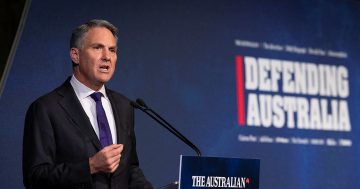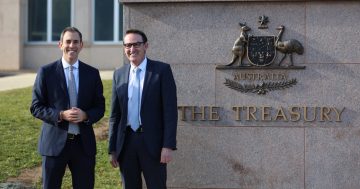 Senior bureaucrats in Northern Ireland are to be put in a “near impossible position” if the United Kingdom Government simply tells them to manage the current Budget over-spend, according to former head of the Province’s Public Service, Sir David Sterling.
Senior bureaucrats in Northern Ireland are to be put in a “near impossible position” if the United Kingdom Government simply tells them to manage the current Budget over-spend, according to former head of the Province’s Public Service, Sir David Sterling.
Departments are on course to over-spend by £650 million ($A1.1 billion) this financial year — the equivalent of almost five per cent of their total budgets.
This is because the Executive at Stormont has not been operating since February, when the Democratic Unionist Party withdrew from the power-sharing arrangement in protest at the Northern Ireland Protocol negotiated between the UK Government and the European Union.
At that point the Province’s Budget was already heading into over-spend territory.
Now Public Servants are controlling the nine Government Departments in Northern Ireland, but are restricted in what decisions they can take.
Northern Ireland Secretary of State, Chris Heaton-Harris has confirmed he will introduce legislation at Westminster which “would enable the Northern Ireland Departments to support public service delivery, and address the serious budgetary concerns”.
However, Sir David (pictured), who ran the Public Service during a previous collapse of devolved Government from 2017 to 2020, said he did not understand how Mr Heaton-Harris could produce a Provincial Budget in the knowledge it would be over-spent.
“It will be interesting to see if he decides that there should be some cutbacks and expenditure elsewhere,” Sir David said.
“If he simply says Northern Ireland’s Permanent Secretaries are going to have to manage down the over-spend, that’s going to put them in a near impossible situation.”
Sir David, who retired two years ago, said Permanent Secretaries would face having to make cuts if they were required to manage the current over-spend.
“My view is it would be constitutionally improper for them to take decisions that would normally be taken by Ministers,” he said.
“At this late stage in the year, the only way you can live within the Budget is probably by stopping some services.
“There’s clearly going to be a negative public interest. Somebody is going to lose and indeed somebody may suffer some harm, if that is the outcome.”
Belfast, 19 November 2022











